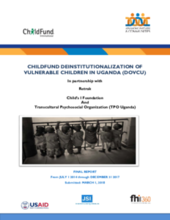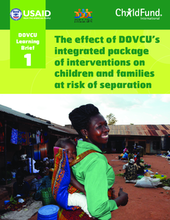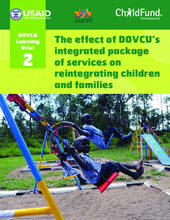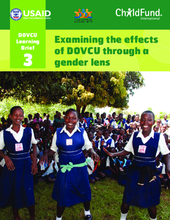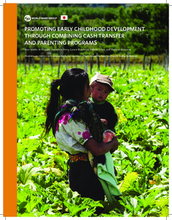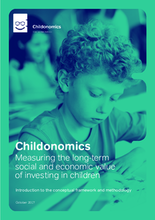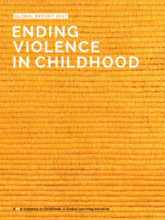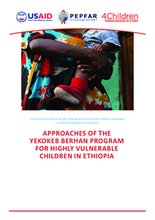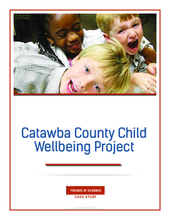Displaying 81 - 90 of 271
This final report on the “Deinstitutionalization of Vulnerable Children in Uganda” (DOVCU) project identifies its successes as well as some shortcomings and key learning that is directly relevant to other projects working to support family care for children.
Catalyzing Business Skills is a suite of three financial literacy and business skills curricula developed by Making Cents International and Child Fund's Economic Strengthening to Keep and Reintegrate Children into Families (ESFAM) project in Uganda.
This learning brief analyzes quantitative data from the first of the project’s stated objectives: examining the extent to which “Deinstitutionalization of Orphans and Vulnerable Children in Uganda” (DOVCU) project interventions decrease vulnerabilities for households and children at risk of separation.
This learning brief analyzes quantitative data from the second of the “Deinstitutionalization of Orphans and Vulnerable Children in Uganda” (DOVCU) project’s stated objectives: examining the extent to which DOVCU project interventions decrease vulnerabilities for reintegrating children and their families.
This learning brief analyzes quantitative data from both households at risk of separation and reintegrating households to understand how the “Deinstitutionalization of Orphans and Vulnerable Children Project in Uganda” (DOVCU) package of integrated social and economic interventions affects children and households differently depending on the sex of the child, caregiver, and/or household head.
This note and the accompanying full technical paper examine the existing evidence and the potential for bringing together cash transfer programs and parenting interventions to improve child development outcomes, notably cognitive performance.
The Childonomics project has developed an instrument that can help to reflect on the long-term social and economic return of investing in children and families.
The report compiles information from a series of global research papers commissioned by Know Violence, presenting the scale and scope of childhood violence globally. Examples of preventative efforts from governments, communities, and organizations are provided to illustrate the feasibility of preventing violence on local and national levels.
In this case study, Coordinating Comprehensive Care of Children (4Children) documents and evaluates the work of Pact's Yekokeb Berhan Program for Highly Vulnerable Children in Ethiopia.
This report is a case study of the Child Wellbeing Project, which sought to address the reduction of services to families post-care compared to available in-care services to prevent foster care re-entry, ensure permanence, and improve long-term outcomes for children.

